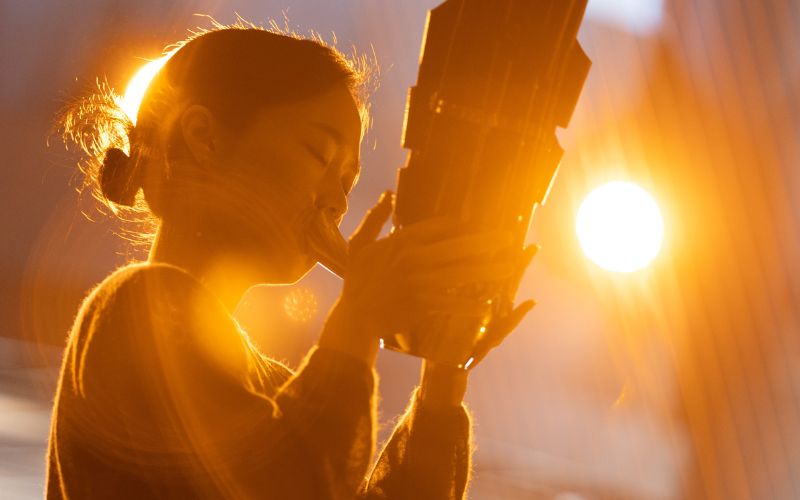
Park Jiha is a Korean composer who works on blending traditional and contemporary Korean music elements into unique compositions. She is proficient in playing several traditional and Western instruments such as the piri, yanggeum, saxophone, and others.
Park Jiha has released several albums throughout her career, spanning more than ten years, the latest being All Living Things, released this year. Her music has received global recognition, and she also participated in composing the score for the film FOE, produced by Amazon Studios.
The artist has given numerous performances in various countries across Asia, Europe, and the Americas, reflecting the impact and authenticity of her music. Among her upcoming performances is a concert organized by the Korean Cultural Center in the UK on October 22, as part of the Korean Music Festival.
In this article, Park Jiha shares her journey in the world of music composition and her artistic philosophy.
The interview was conducted via email between September 1 and September 4. The following are excerpts from it.
Could you tell us more about your beginnings?
When and why did you decide to blend traditional Korean instruments with modern ones?
After graduating from university, I felt that I should create my own music instead of merely performing existing traditional pieces. I began experimenting gradually with composing new pieces using the instruments I played.
Over time, I expanded my musical scope, seeking new sounds not only through traditional instruments but also via modern instruments and electronic sounds.
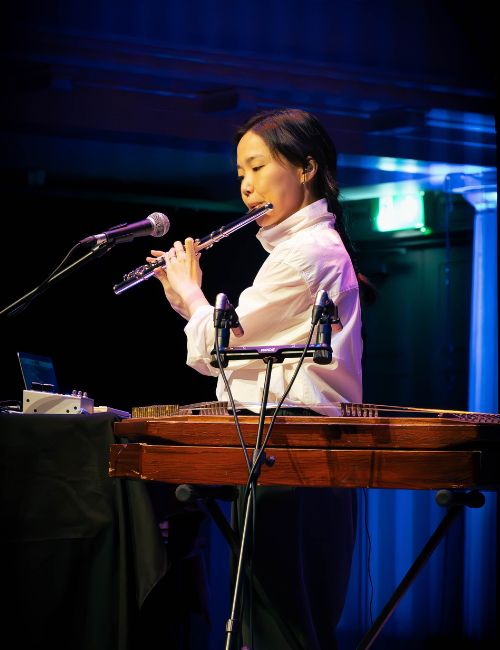
How did your musical style develop from your first album to your latest album? What are the milestones in your career?
The first album, Communion, was a collaboration with musicians playing Western instruments like the saxophone and vibraphone, creating free and experimental pieces. The second album, Philos, was a personal project where I aimed to complete an album entirely with my own sounds from start to finish. I believed this step was essential in my musical journey, so I made this album.
The third album, The Gleam, centered around the theme of "light," with a focus on the spatial and temporal aspects of sound. I consider it more minimalistic compared to the previous albums. Later, I composed the original score for the film FOE, produced by Amazon Studios in the United States, which expanded my creative work into film music. I think this experience marked the latest musical turning point for me.
Building on this experience, I created my latest album, All Living Things, which retains elements of minimalism but incorporates a wider variety of stories and sounds.
Do you rely more on inspiration or do you tend to plan carefully for your work?
What inspired you to create your last album, All Living Things? Tell us more about its creation process. How do you express the core of nature through music?
I believe that forcing music without genuine inspiration is not right. I prefer to give myself time until the real desire to create emerges. When that moment comes, my senses become more sensitive to what I see, hear, and read in everyday life. Over time, special moments arise that prompt me to think: I need to put this story into my music.
Even now, I find these moments astonishing. It feels as if a clear certainty or revelation gives me a strong internal force. During the preparation of this album, I experienced many such moments, arising not from extraordinary events but from ordinary routines, like reading the newspaper in the morning, walking, or doing yoga, and suddenly an idea comes to mind.
The joy then lies in translating these ideas into music, or conveying them through the album's concept, piece titles, cover design, and overall visual imagery. For me, this process is the most meaningful and enjoyable, as I feel I am creating a true record. I believe that creating music in this way, seeking harmonious sounds, and embedding my perception of beauty within it is the most authentic way I express the essence of nature. Just as nature offers humans profound comfort and inspiration in its pure form, I hope my music conveys a similar naturalness.
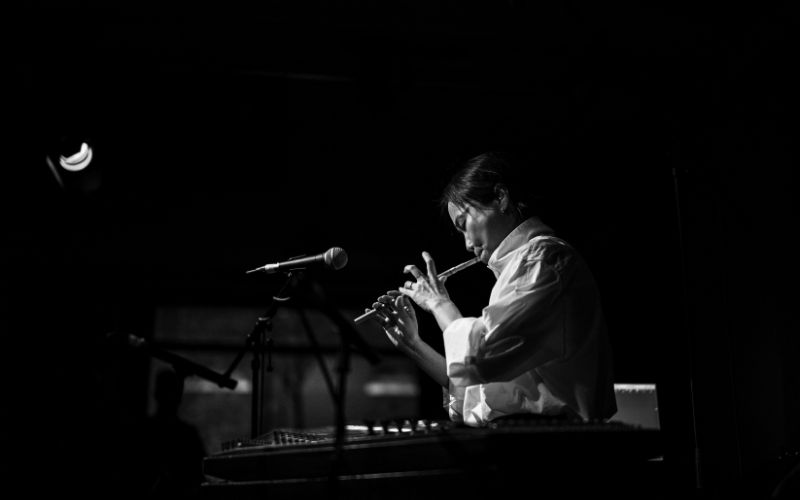
What was the foreign audience's reaction to your works? Tell us about a memorable international tour or performance.
Naturally, my European tour in April, right after the album release, is very memorable, as well as the concert in Tokyo, Japan, in May. These were the first times I presented the new album's pieces live, and I felt both nervous and excited.
The audience's reactions were encouraging, but what impressed me most was seeing the theater staff, sound, and lighting crew gradually engage with the performance during rehearsals, moving with the rhythm. Observing their enjoyment gave me an additional sense of satisfaction and pride.
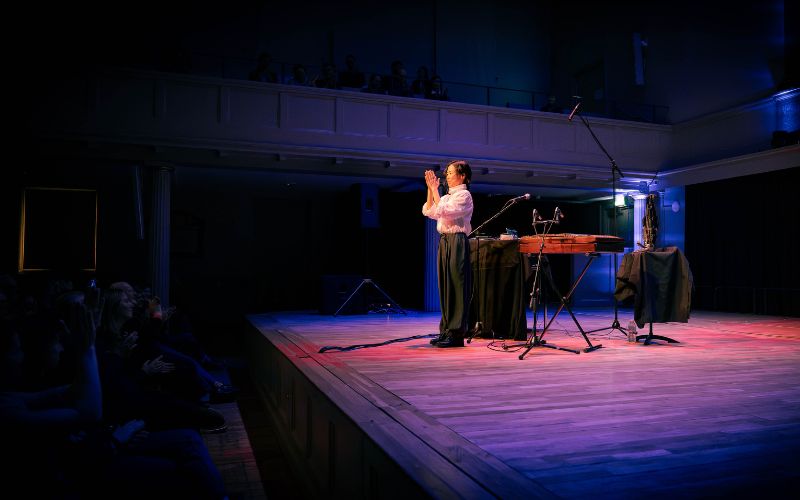
Do you prefer working solo or in collaboration? How do you choose the artists you collaborate with?
From the first album until my latest, I have focused on working alone. I enjoy creating the full structure of a piece with multiple instruments by myself, as it allows experimentation without time constraints, whenever I am available and to the extent I desire.
I cannot say I prefer one method; each has its clear advantages and disadvantages. Collaborations bring energy from other artists and open avenues I had not considered, which is enjoyable. Sometimes I feel the desire to engage in new collaborations with people I resonate with intellectually and spiritually.
Since this album consists of multiple parts, I am considering, if the opportunity arises, reworking it into an orchestral version.
How do you think music can connect the different cultures?
What messages are you trying to convey through your music?
Absolutely, I believe music can connect cultures. However, my main goal is not to teach people about Korean culture or traditional music directly. The instruments I play are simply tools to express my music. I create highly personal music and hope it reaches people as universal music. My music may be "Korean" to some extent, or not; it is a complex and diverse mixture.
Through music, I have met many wonderful people who resonate with me. Interestingly, those who loved my music seemed to share an invisible thread of connection with me. Since everyone comes from different backgrounds and cultures, I believe my music has indeed served as a means to connect many cultures together.
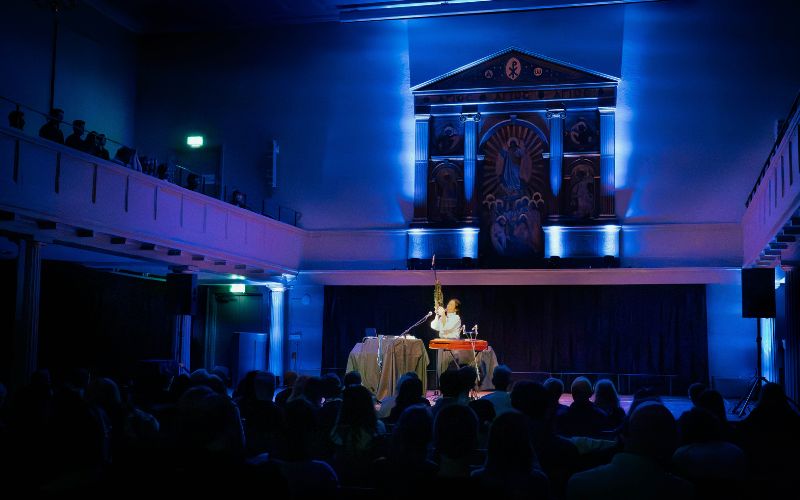
Among your works, which one do you feel represents you the most? And why?
In fact, this applies to all my albums and all pieces within them. They reflect my state and thoughts at the time. I am satisfied that these works remain as continuous records. This is also why I continue producing full albums, slowly but steadily.
What are your upcoming plans and musical tours?
I have upcoming performances in October in Vienna, Austria, and London, UK. In December, I was invited to perform at the Wonderfruit Festival in Thailand. A limited vinyl edition of the music I created last year for the Nam June Paik exhibition at the Museo d’Arte Orientale in Turin, Italy, will also be released.
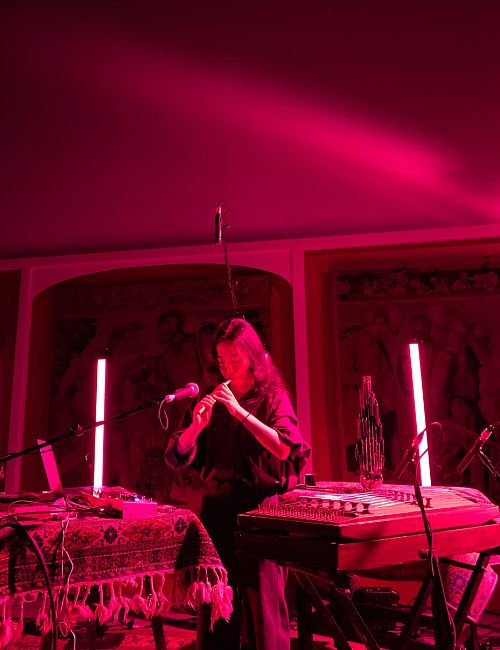
Musical composition does not rely on text, plot, or imagery like other art forms. Music is the only art capable of expressing the deepest and most complex human emotions without words. Music is the universal human language that unites us all.
Keywords:
Park Jiha, Traditional Korean Music, Piri, Korean Cultural Center in the UK, Korea Net, Republic of Korea
How about this article?
- Like0
- Support0
- Amazing1
- Sad0
- Curious0
- Insightful0


